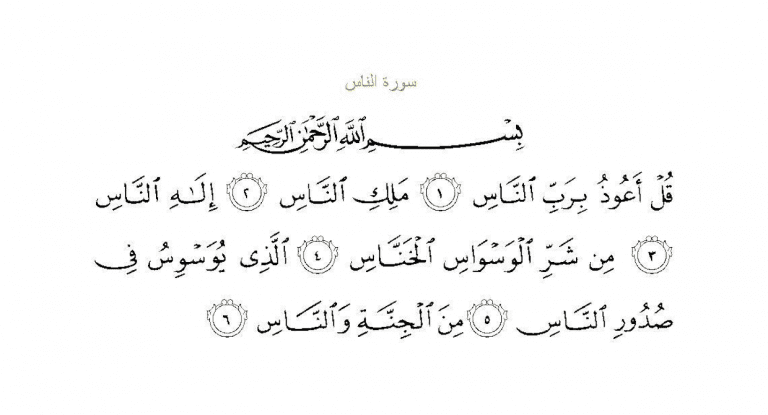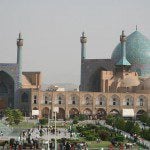
It’s commonly believed among Muslims that the Qur’an cannot be translated. Not that there exists some legal prohibition against such translation; renderings of the Qur’an abound in virtually all of the world’s languages, many of them by Muslims and distributed by Muslim publishers. Rather, the thought is that the task is simply impossible. It can’t be done. And I would tend to agree. The Qur’an is not poetry, but it is poetic. And poetry has sometimes been wittily defined as “that which cannot be translated.” Poems can be paraphrased in another language and, if the translator is extremely gifted, a new poem based upon the original can effectively be created in the target language. But it won’t be the original poem.
Part of the problem is the sound of the original. It is extremely difficult to reproduce that sound in a new language. And that is part of the problem with translating the Muslim scripture. The 114th sura or chapter of the Qur’an — Surat al-Nas, the very last of them — offers a particularly clear example of the significance of the book’s original Arabic sound.
First, I offer my quick and inadequate translation of the chapter, a short one, in its entirety. It begins, as every Qur’anic chapter begins except one, with the phrase “In the name of God, the Merciful, the Compassionate.” But that phrase is not numbered as one of the verses (ayaat) of the sura, and my attention here will be focused specifically on those six verses:
1. Say, “I take refuge with the Lord of mankind,
2. the King of mankind,
3. The God of mankind,
4. from the evil of the sneaking whisperer,
5. who whispers in the hearts of people,
6. Among the jinn and the people.”
Now, with some embarrassment because of its ridiculous and barbaric appearance, I offer a very unscholarly transliteration of the sura, in the hope of giving non-Arabists at least a notion of how it sounds in Arabic:
Qul a‘OO-thoo bi-rabb an-NAASS
MA-lik an-NAASS
i-LAA han-NAASS
min sharr il-wiss-WAASS il-kha-NAASS
al-lathee yu-WASS-wissu fee su-DUR an-NAASS
min al-jinna wa an-NAASS
Please note the recurrent hissing s sound. This, I think, suggests a clue to the identity of the “sneaking whisperer” in the fourth verse. Clearly, he’s the devil. Specifically, though, I believe that he’s the serpent in the garden of Eden. And that, in turn, is a helpful hint for understanding those in the Islamic world who denounce the United States of America as “the Great Satan” (Persian Shaytân-e Bozorg). Americans are often puzzled by this epithet. We don’t typically see ourselves or our country as evil. Certainly, we’re not the worst. We don’t rank with Hitler’s Third Reich, the Cambodia of the Khmer Rouge, Mao’s China, or Stalin’s Gulag, nor even with the later, decaying, Soviet Union that invaded Afghanistan for nakedly imperialistic reasons and directly attacked its general Muslim population and even its children.
The issue for many Muslims, though, isn’t merely that they oppose several important elements of American foreign policy and see the American government as evil. It’s that American culture is not only corrupt and often immoral by their standards but, like the serpent in Eden, seductive. It’s attractive. Alluring. Posing as their friend, it will drag them and their children to Hell, both figuratively and literally.











